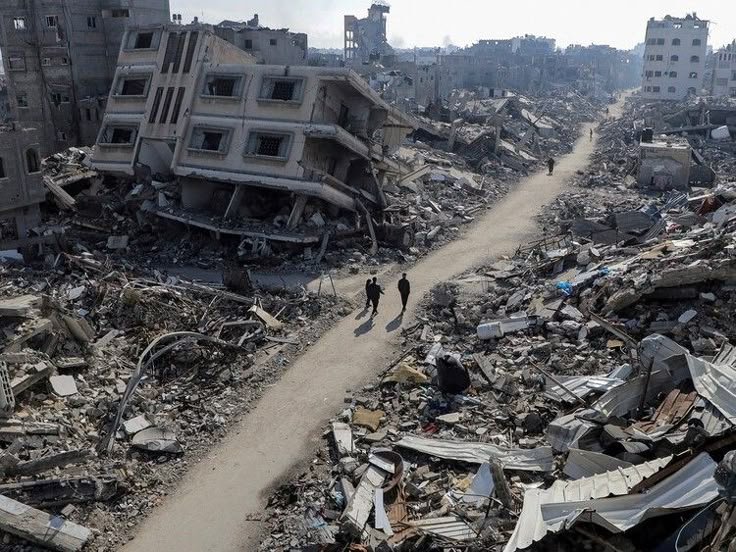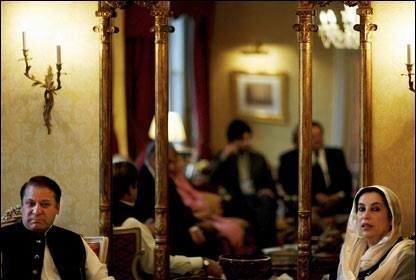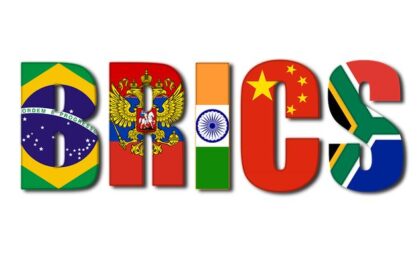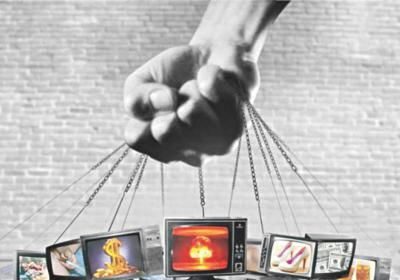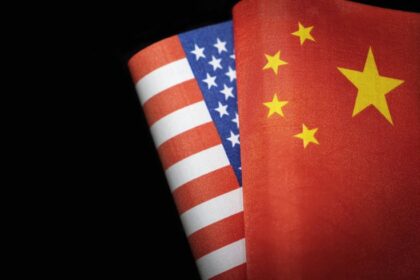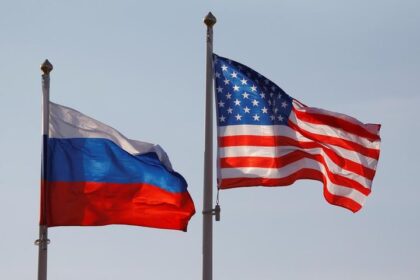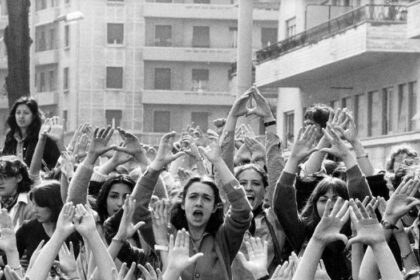Long before the dust settles on bombed-out neighbourhoods, new deals are being drawn up, and these aren’t peace deals in any meaningful sense. They’re about power, reconstruction, and profit.
The aftermath of conflict has become a lucrative economy, a space where destruction gives way to opportunities for foreign governments. In the ongoing atrocity of Gaza’s destruction, we are witnessing not a break from war, but an economic reincarnation. The question about who profits from the war’s aftermath is not just about morality. It is about how modern wars, especially in the Middle East, are never just about military victory or political change but instead about who gets to rebuild what was destroyed once the fighting stops.
Today, the war still rages as the money moves. As bombs continue to fall on the Gaza Strip, negotiations are already underway—not just about ceasefires, but about the future of energy supplies and trade routes. This is not a conspiracy theory; it’s how geopolitics works. When politicians say they are “planning for the day after,” what they often mean is that they are calculating how to position themselves for influence and economic advantage once the conflict ends.
To understand this moment, we must remember that the region is sitting atop immense natural gas reserves. The Eastern Mediterranean (off the coasts of Israel, Egypt, Gaza, and Lebanon) has become a hotspot for offshore gas discoveries in the last decade. The wars and diplomatic crises surrounding it have not stopped the drilling; in many cases, they’ve merely rearranged who has access. With Europe scrambling to replace Russian gas following its invasion of Ukraine in 2022, European countries made a long-overdue decision to wean themselves off Russian gas. However, energy must come from somewhere. That “somewhere” is increasingly the Middle East. Qatar, with the world’s third-largest natural gas reserves, stepped in quickly. It signed long-term contracts to supply European countries with LNG—natural gas that has been cooled into a liquid so it can be shipped long distances. These deals run for 15 to 27 years. Europe is locking itself into a new dependency.
Qatar is also mediating in Gaza, trying to broker a ceasefire between Hamas and Israel, and facilitating aid deliveries. To many observers, this is a form of humanitarian diplomacy. But Qatar’s mediation is not neutral. It maintains ties with Hamas while also housing a significant U.S. military base. It plays all sides because that’s how it secures its role as a necessary partner for everyone. This dual-track strategy is not incoherent; it is transactional in nature. By offering a communications channel to groups the West cannot (or will not) engage, Qatar becomes indispensable. In return, it gains not only political prestige but also strategic insulation and economic leverage.
The same strategy is applied to energy. In a global market increasingly defined by scarcity and volatility, Qatar’s long-term LNG deals with European buyers are being inked at record volumes. The West, desperate to diversify away from Russian gas, has little room to moralise about Doha’s alliances. In effect, war and its diplomatic residue elevate the bargaining position of authoritarian petro-states, not because they have moral authority, but because they have resources and access.
It is easy to portray this as cynical, and it is. But it is also systemic. Mediation is no longer purely a humanitarian act; it is a political investment. The currency of the future Middle East is not just oil or ideology but influence over the reconstruction ledger.
As Qatar milks the European powers, who benefits from the ongoing destruction?
Wars destroy, and the situation in Gaza is catastrophic. Over two million people are trapped in what the UN calls one of the most densely populated and devastated territories on Earth. Israel claims it is targeting Hamas, the militant group that governs Gaza. But the civilian death toll, the destruction of hospitals, homes, and infrastructure, and the ongoing blockade suggest a broader form of collective punishment.
And yet, even while the war continues, Israeli and international actors are already talking about “reconstruction.” Understand that reconstruction under occupation is not the usual rebuilding. Israel and Egypt still control Gaza’s borders. Its fishing zone is heavily restricted. Cement, fuel, and steel are often classified as “dual-use” materials—things that can be used for both civilian and military purposes—and therefore blocked or delayed at the border. If this system remains in place, no amount of foreign funding will lead to a genuine recovery. What will be built is not a city, but a tightly managed zone of dependency. So, who will rebuild Gaza? And most importantly, who will pay?
Enter Turkey, whose vision of becoming an energy transit hub has shaped its every foreign policy move from Libya to Syria to the Eastern Med. This is no coincidence. It is structural: diplomacy, humanitarian aid, and reconstruction serve as a public relations facade for a new resource race.
Even the rubble has value. The rebuilding of Gaza, if it occurs, will require billions, and the contracts for cement, steel, desalination plants, and power infrastructure will be as politicised as the bombs that tore the Strip apart. Turkish construction firms are poised, not coincidentally, to play a key role, as they have in post-earthquake Syria and previously in Iraq. Ankara’s support for Hamas (tempered by economic pragmatism) is not merely ideological; it positions Turkey as a negotiator that has chips to trade for commercial access. Turkey, under President Erdoğan, presents itself as a defender of Palestinians. But behind the slogans lies a more strategic game. Erdoğan sees Gaza not just as a cause but as a potential market. Turkish firms are already lobbying to win future rebuilding contracts, just as they have done in the past after Israeli offensives.
Iran, meanwhile, plays a more indirect role. It supports armed groups like Hezbollah in Lebanon and militias in Iraq and Syria. Its backing of Hamas is both ideological and deeply political. While it confronts U.S. and Israeli power in the region, it also makes quiet moves: strengthening energy ties with Iraq, investing in reconstruction in Syria, and offering “assistance” that ultimately gives it long-term control over infrastructure and loyalty.
These aren’t just gestures of regional brotherhood. They’re forms of influence. If you build the power grid, you control the lights. If you fund the roads, you control the movement.
The aftermath of war in the Middle East is not an epilogue. It is the next chapter of conflict by other means. Energy politics, reconstruction deals, and diplomatic mediation have all become arenas for power projection rather than healing. When the bombs fall silent, the meetings begin to monetise their consequences. And so the question—who profits from war’s aftermath?—demands an answer as hard as the reality it confronts: the profiteers are already in the room, draughting contracts. At the same time, the dead are still being buried.
They are not anomalies; they are the architects of a system in which peace is always secondary to position, and justice is always postponed until the next deal.






